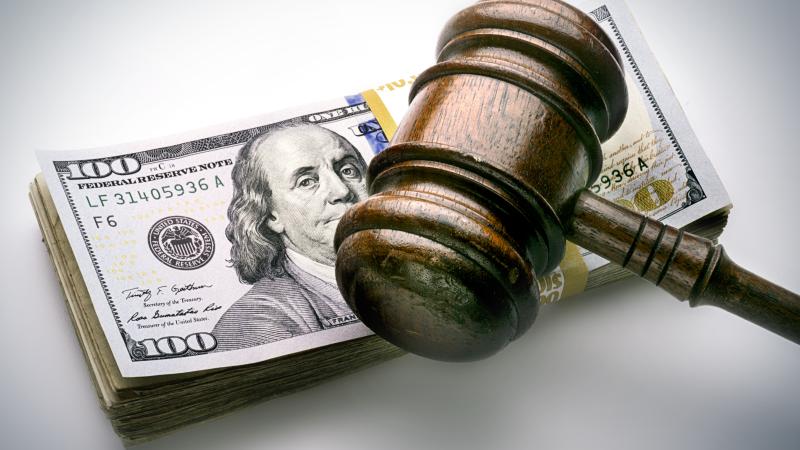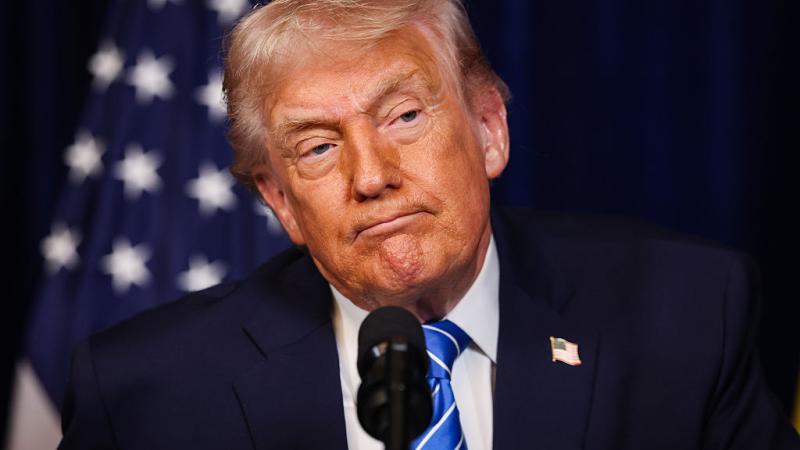Senior staff defending Biden, directing autopen had remarkably little access to the president
The House Oversight Committee’s probe into former President Biden’s alleged mental decline and autopen authorizations uncovers evidence of a siloed White House.
Senior aides to Joe Biden insist that while president he remained fit to govern and mentally capable during the final years of his single term. But their congressional interviews paint a picture of a siloed White House and often show key staff members had minimal interactions with the chief executive.
Those closest to the former president, now 82, on a daily basis reported he became “less energetic” during his final year in office, while those responsible for the White House's public messaging continued to insist concerns about Biden’s mental acuity were baseless.
Additional witnesses have been less forthcoming about their work in the White House. The former president’s personal physician and first lady Jill Biden’s chief of staff each invoked their Fifth Amendment right against self-incrimination under questioning by the GOP-led House Oversight Committee.
Oversight Chairman James Comer, whose committee is leading the probe into an alleged coverup of the former president’s mental decline, has vowed to continue the investigation. He said the recent transcribed interviews of former senior staff continue to raise “serious questions about who is truly calling the shots” in Biden’s White House.
Comer believes that evidence gathered so far in the probe could be used to challenge some of Biden’s pardons or executive orders because his senior staff have failed to prove the former president knew what he was signing. The committee has zeroed in on Biden's use of an autopen to sign clemency acts and some executive orders over concerns that he may not have approved them.
“It's questionable whether or not it's legal to use an autopen on a legal document, but what's not questionable is if the President of the United States had no idea what was being signed with using the autopen in his name,” Comer told the Just the News, No Noise TV show earlier this month. “Then, you know, that's not legal.”
Comer says he believes the evidence he has gathered could be used to call the acts into question, especially for any signed legal documents following the former president’s disastrous summer 2024 presidential debate in which his poor performance gave rise to questions about his mental acuity.
“I think at the end of the day, our investigation … could be used as evidence in trying to overturn some of those pardons and some of the executive orders, because the autopen was used so frequently … after that debate,” Comer said.
Ian Sams, the former spokesman for the Biden White House Counsel’s Office, testified to the committee Thursday as part of the panel’s ongoing investigation, admitting that he interacted with the former president on just four occasions during his tenure – two in-person meetings, one virtual meeting and one phone call, according to a statement Thursday by the committee.
However, Sams served as the leading White House defender of Biden against the House Republican impeachment inquiry and Justice Department special council Robert Hur’s investigation into Biden's mishandling of classified documents.
Hur, tasked with investigating Biden’s alleged mishandling of documents after his vice presidency, delivered a scathing assessment of the president’s mental acuity in his final report, which was released by the department in February.
Hur’s report cited several factors contributing to his decision to decline filing any charges against Biden. One reason Hur provided: Biden’s poor memory. Sams lambasted the special counsel’s conclusion, calling it "gratuitous and inappropriate.”
However, as one of Biden’s chief spokesmen on key public relations issues impacting the former president, Sams had remarkably few interactions with the man in charge, providing further evidence of a siloed White House.
“Ian Sams frequently spoke publicly and with apparent authority about President Biden’s mental fitness and state of mind. However, Mr. Sams admitted he had very limited interaction with the President. ... In fact, Special Counsel Robert Hur probably spent more time with President Biden than Mr. Sams did,” Comer said in the statement Thursday, after Sams’ transcribed interview.
"Rather than drawing conclusions from firsthand experience, Mr. Sams received much of his direction from the White House Counsel and Biden’s inner circle. Mr. Sams repeatedly made broad public claims about the President’s cognitive condition, but he was not in a position to make these claims based on such limited contact," Comer continued.
Neera Tanden, the former director of Biden's Domestic Policy Council, also admitted to the committee, despite being in charge of directing the use of the autopen, she was given little insight into how those acts were being approved. She told the committee that she did not know who in Biden’s inner circle was ultimately approving the actions.
"Ms. Tanden testified that she had minimal interaction with President Biden, despite wielding tremendous authority," Comer said of the interview, which took place in late June.
"She explained that to obtain approval for autopen signatures, she would send decision memos to members of the president’s inner circle and had no visibility of what occurred between sending the memo and receiving it back with approval. Her testimony raises serious questions about who was really calling the shots in the Biden White House amid the president’s obvious decline,” Comer continued.
However, those who interacted with the former president on a more regular basis noticed Biden’s poorer memory, especially during his final year in office.
Ron Klain, former White House Chief of Staff and longtime Biden advisrr, told the committee he saw Biden’s memory decline, that his former boss frequently mixed up names, and was overall “less energetic,” the New York Post reported following Klain’s transcribed interview. However, Klain denied that Biden lacked the mental acuity to continue to govern or run for re-election in 2024.
Biden’s former senior adviser, Anita Dunn, and deputy chief of staff, Steve Ricchetti, told the committee that inner circle staff were treating Biden’s memory as a political issue, yet both insisted that they believed the former president was up to the task of governing.
Dunn said that senior staff had collectively decided against administering a cognitive test to the former president because it would not provide any political benefits to the embattled candidate, a source familiar with the interview told The New York Post.
Ricchetti “admitted that they all knew President Biden’s age was an issue and were dealing with it as a political matter,” a source familiar with the interview told the Washington Examiner.
During his interview, Ricchetti reportedly said that Biden made “common mistakes” but that the frequency did not increase over time, as Klain said.
The Facts Inside Our Reporter's Notebook
Links
- vowed to continue the investigation
- could be used to challenge some of Bidenâs pardons or executive orders
- Comer told the Just the News, No Noise TV show
- testified to the House Oversight Committee on Thursday
- delivered a scathing assessment
- lambasted the special counselâs conclusion
- interacted with the president on four occasions
- James Comer said in a statement
- also admitted to the committee
- Comer said of the interview
- he New York Post reported
- Steve Ricchetti told the committee
- collectively decided against administering a cognitive test














